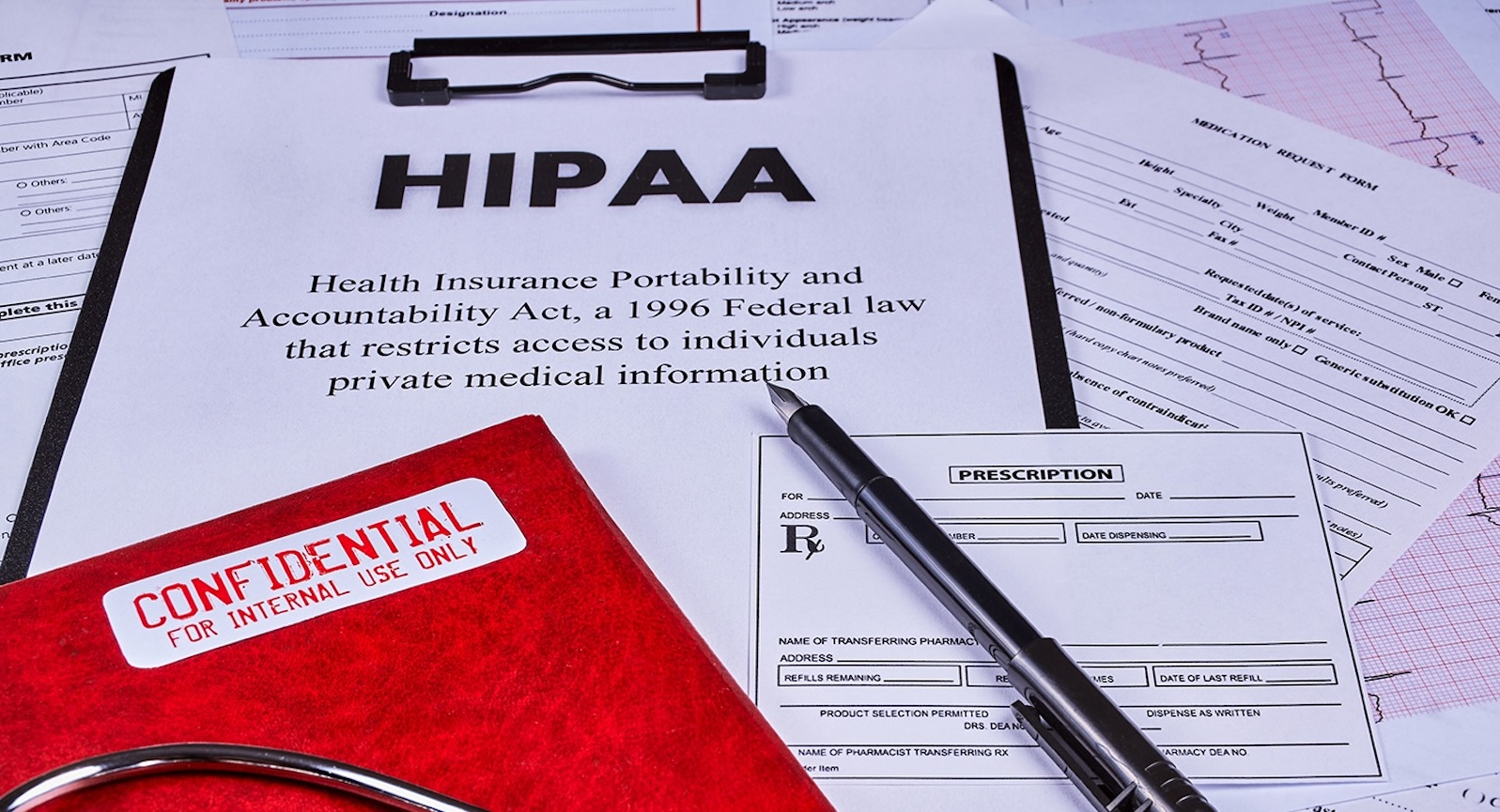
HIPAA, the Health Insurance Portability and Accountability Act, sets the standard for protecting sensitive patient data. Any dental practice dealing with patient information must ensure that all the required physical, network, and process security measures are followed. HIPAA compliance is not just a legal requirement but a duty to safeguard patients’ trust. However, common misconceptions about what it means for a dental website to be HIPAA compliant can lead to critical mistakes, risking patient data and the practice’s reputation. Understanding and addressing these gaps is vital to protecting your practice and patient’s sensitive information.
I Want New Patients! Schedule My FREE New Patient Strategy Meeting1. Not Having a Notice of Privacy Practices Readily Available
One common oversight is the absence of a Notice of Privacy Practices (NPP) prominently displayed on dental websites. The NPP document clearly states how patient information can be used and shared. It is a HIPAA requirement to inform patients about their privacy rights and the practice’s legal duties regarding protected health information (PHI).
When a dental practice does not make their NPP easily accessible online, they not only stray from HIPAA regulations but also miss an opportunity to build trust with their patients. The Notice of Privacy Practices should be available without asking, ideally with a clear link on the dental website’s homepage. This ensures that new and returning patients can find it easily.
This simple yet vital step to show patients their privacy is taken seriously, reinforcing the practice’s commitment to patient data protection and transparency. Suppose your dental office has not yet placed your NPP online. In that case, rectifying this should be a top priority to avoid HIPAA violations and ensure your patients are well-informed about their rights.
2. Not Properly Securing ePHI With an Encrypted Website
Ensuring the electronic Protected Health Information (ePHI) is secure is critical, but many dental practices overlook the importance of having a secure sockets layer (SSL) on their website. An SSL certificate creates a secure link between your website and your visitor’s browser.
Without it, the data transmitted is at a higher risk of being accessed by unauthorized third parties. This includes patient data and sensitive information from the dental office, like login credentials and payment details. Using an encrypted website is a basic step in HIPAA compliance that helps protect against data breaches.
Regrettably, some dental practices are unaware of this necessity or fail to keep their SSL certificates up-to-date, leaving their patient information vulnerable to cyber-attacks. It’s about having an SSL certificate and ensuring it’s properly installed, configured, and working. HIPAA’s security rules are clear about practicing thorough safeguarding methods for patient information.
Failing to implement SSL encryption on your dental website can lead to a significant HIPAA violation with serious consequences. It’s essential to work with web vendors that understand HIPAA requirements and ensure their compliance with the HIPAA privacy and security rules to safeguard sensitive patient data effectively.
3. Non-Compliant Contact Us and Request Appointment Forms

Many dental practices strive to make communication easy for patients through online “Contact Us” and “Request Appointment” forms. However, it’s common to miss ensuring that these forms are HIPAA compliant, and this oversight can be a significant risk. These forms often collect ePHI, such as patient names, contact information, and visit reasons.
If this sensitive information is not handled correctly—encrypted and sent to secure email or server locations—it becomes a HIPAA violation. To maintain compliance, contact and appointment forms on dental websites must be designed to protect the ePHI they collect.
This means using forms that encrypt the data patients submit and ensuring the information is only accessible to authorized personnel. Without the right protective measures like encryption and secure data storage, any sensitive information shared through these forms could end up in the wrong hands. Dental offices need to regularly review and update their web forms to prevent HIPAA mistakes.
By working with knowledgeable web vendors who understand the importance of complying with HIPAA regulations and who utilize secure sockets layer technology, dental practices can avoid the risks associated with handling patient data online. It’s crucial to promptly fix these HIPAA compliance issues to secure patients’ trust and uphold the dental practice’s reputation.
4. Not Having Business Associate Agreements in Place with Third-Party Vendors
One critical HIPAA oversight among dental practices is neglecting to establish formalized Business Associate Agreements (BAA) with third-party vendors. When dental offices utilize third-party services involving access to patient information, such as online scheduling or electronic billing, they must ensure these vendors comply with HIPAA’s stringent security rules.
A BAA is a written authorization that binds these vendors to adhere to the same standards of patient data protection as the dental practice. Without this documentation, patient information could be mishandled, resulting in a severe breach of privacy. The absence of a BAA puts patient data at risk and leaves the dental practice vulnerable to legal ramifications, including significant fines.
The HIPAA Privacy and Security Rules are explicit; any service provider that handles ePHI on behalf of a covered entity must secure it as per the Act’s requirements. Not securing a signed BAA with vendors that have potential access to ePHI is a violation that can lead to preventable yet grave consequences for a dental practice.
Therefore, practices must prioritize the prompt establishment of Business Associate Agreements with all their partners that require access to or manage patient information, safeguarding against liability and ensuring compliance with federal HIPAA regulations.
5. Using ePHI on Your Website Without Patient Consent
Another grave misstep for dental practices is showcasing patient testimonials or before-and-after images on their website without obtaining explicit, HIPAA-compliant consent. Such displays involve electronic Protected Health Information (ePHI), which, under HIPAA rules, requires patient authorization before being used for marketing or any other purposes.
Using ePHI for promotional dental marketing may enhance a practice’s reputation, but not securing patient consent is a significant breach of privacy and violates HIPAA regulations. It’s essential to understand that verbal agreements or assumed consents are insufficient; dental practices must acquire written consent that outlines how the ePHI will be used, ensuring the patient fully understands and agrees to the terms.
Failure to secure proper consent can lead to severe penalties, including fines and legal action, damaging the practice’s credibility and patient trust. Protecting patient confidentiality is integral to healthcare; thus, when leveraging ePHI, dental practices must prioritize obtaining informed, documented consent that meets HIPAA standards to maintain that trust with potential patients and stay within legal boundaries.
Conclusion
In conclusion, maintaining HIPAA compliance is not just a regulatory requirement but a fundamental aspect of running a responsible dental practice. Common oversights such as inadequate SSL certificates, non-compliant web forms, absent Business Associate Agreements, and the unauthorized display of ePHI on social practice websites can lead to severe consequences, both legally and in terms of patient trust. To prevent such violations and ensure the security of patient data, dental practices must collaborate with vendors who are well-versed in HIPAA regulations and consistently review and update their practices to remain compliant. By doing so, dental offices safeguard patient privacy, uphold their reputations, and contribute to a trustworthy healthcare system.
I Want New Patients! Schedule My FREE New Patient Strategy Meeting